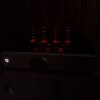DanielT
Major Contributor
"downward dynamic range".. eh, that sounded as a waffle statement.Or it has no meaning whatsoever but sounds good. I remember Allen Wright always using the slogan "downward dynamic range," which was similarly more of a fortune cookie slogan than anything with actual meaning.
You who are a professional. Is this correct? Only distortion and FR (plus absolute phase) determine the sound of anything other than speakers / headphones. For speakers, dispersion is added.
And then this with when the sound leaves the speaker, the speakers / speaker elements and reaches the ears? (if not it can be expressed in deviations FR and distortion?
Ok, that's really a big question and needs several threads to sort out, I suspect, but still.
Edit
I've adding noise to the list.
Last edited:

